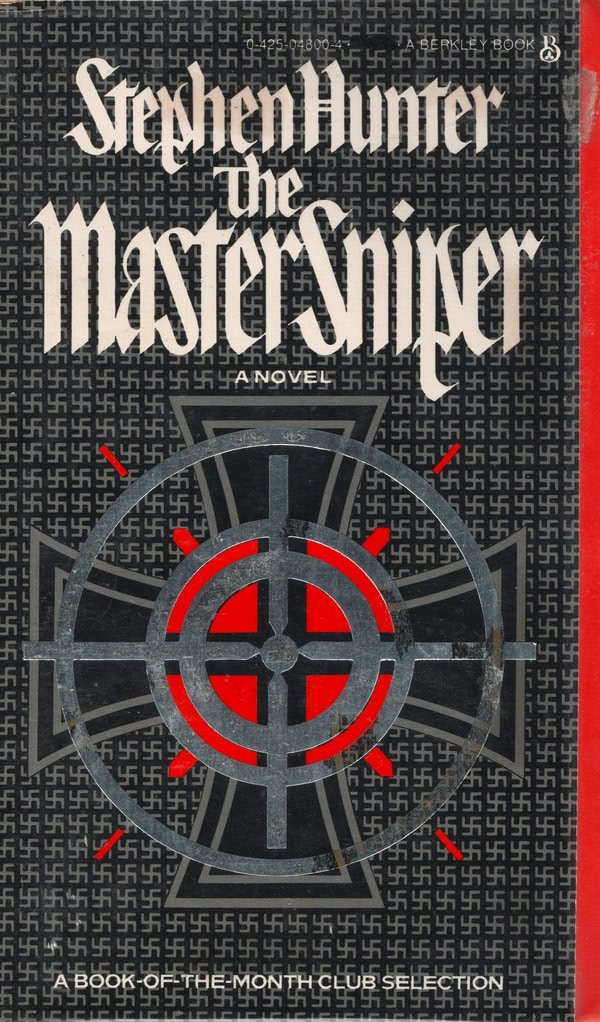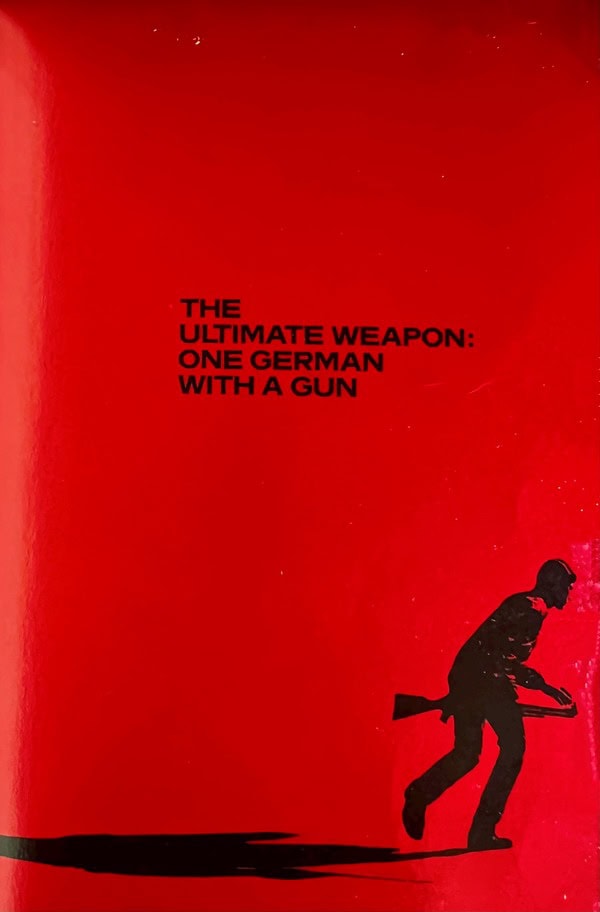FORGOTTEN THRILLERS: THE MASTER SNIPER BY STEPHEN HUNTER
I have been writing an article for Justin Marriott’s esteemed The Paperback Fanatic on World War II Assassination novels of the 1970s and 1980s, which looks back at those books that came out following the huge success of the Jack Higgins classic – The Eagle Has Landed. In the process of researching for the article I have been reading, or re-reading, the pile of WWII thrillers I have accumulated over the years. One of the first I re-read was Stephen Hunter’s terrific The Master Sniper (1980).
The Master Sniper is set in the closing days of World War II and really set the template for a lot of the Second World War assassination thrillers that followed.
The plot is reasonably straight forward, albeit with a slight twist. In January 1945 the Allies hear word of a possible secret German operation involving a new type of rifle. The authorities are skeptical, but a weapons expert at the Office of Strategic Services, Captain Leets, gets the feeling that there is something in it, especially when a Jewish concentration camp escapee turns up with details of the weapon’s trial run. Meanwhile, one of Germany’s best snipers, the mysterious Captain Repp, is preparing for a final mission that could change the course of the war. With very little support, Leets intensifies his pursuit of the assassin, while Repp heads off through the chaos of the German front lines to find his target and complete the mission.
The result is a really gripping thriller. The shifting of the viewpoint between Repp, Leets, the Jewish escapee and some other key players, maintains the tension at a high level, and there is plenty of action to keep it interesting. The descriptions of the final weeks of the war, from both the German and Allied perspective are convincing and bloody, and the mystery around Repp’s target also generates plenty of suspense. I had originally read The Master Sniper back in the early 1980s, and while I could remember where and how the book ended, I could not recall the reason for it all, which is actually very clever. The ending is very tense and the final seventy pages, or so, are almost impossible to put down.
There is plenty of detail and gun lore in The Master Sniper, but overall the pacing is pretty good. Some interludes, including a London meeting with Ernest Hemmingway and a tennis match, are probably unnecessary, but readers of classic thrillers will enjoy the early reference to the novels of James Hadley Chase. Certainly the pace is much better in the last third, and the book races to the final surprising confrontation.
Overall, The Master Sniper is a well plotted, intelligent and exciting thriller with good characters and a convincing wartime milieu. It has held up well over the years, and is well worth tracking down. You won’t be disappointed!
It also has a terrific tagline that appears in the inside cover of the 1981 Berkely Books paperback edition – “The Ultimate Weapon: One German With A Gun”




